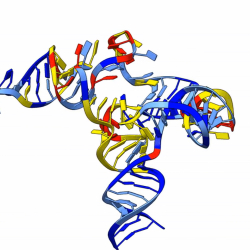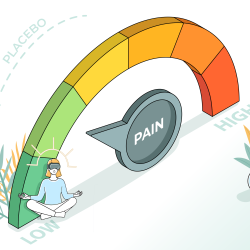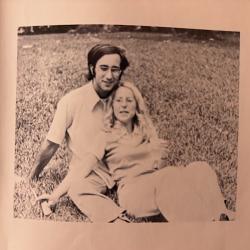Two Science Terps Among 2020 Rhodes Scholarship Finalists
University of Maryland senior Maïgane Diop and alumnus Nipun Kottage were among the finalists for this year’s Rhodes Scholarships, the world’s most prestigious award for international study. Diop is majoring in biological sciences and minoring in philosophy; Kottage received Bachelor of Science degrees in both biochemistry and anthropology in 2019.
“Congratulations to Maïgane and Nipun on this well-deserved honor,” said Amitabh Varshney, dean of UMD’s College of Computer, Mathematical, and Natural Sciences (CMNS). “These remarkable students have already made extraordinary contributions in research, public service and leadership here at Maryland and I can’t wait to see how they make their mark on the world.”
Diop and Kottage were among 236 Americans selected for Rhodes finalist interviews held this past weekend in cities around the country. Only 32 were selected to represent the United States as 2020 Rhodes Scholars.
“Both Maigane and Nipun are outstanding students and extraordinary people,” said Todd Cooke, a UMD professor of cell biology and molecular genetics and the director of the Integrated Life Sciences program in the Honors College. “Their praiseworthy accomplishments at UMD suggest very strongly that their future contributions as physician-scientists will profoundly impact the quality of health care in underserved and marginalized communities all over the world.”
UMD has had two Rhodes Scholars in the 115-year history of the program—both from CMNS: Fang Cao (B.S. ’15, biological sciences) and the Hon. Charles Thomas “Tom” McMillen (B.S. ’74, chemistry).
“While those awarded Rhodes Scholarships tend to go on to great things, so too do all of the extraordinary men and women who are called to these hyper-competitive interviews. To be among this stellar group of finalists is a testament to the caliber of Nipun and Maïgane’s character, prior accomplishments and future potential,” said Richard Bell, a UMD associate professor of history who serves as UMD’s advisor for United Kingdom scholarships and fellowships. He also chairs the university’s U.K. awards nomination committee.
Maïgane Diop
 A member of the Integrated Life Sciences program in the Honors College and a Banneker/Key Scholar, Diop also participated in the university’s Federal Fellows Program. She is co-founder and co-president of Gove: Advocates for Women’s Health, a student organization that develops and coordinates service projects to increase outreach, civic engagement and service in our local community. Diop also served as an experience leader for UMD’s Alternative Breaks program, planning and leading a 10-day immersive service-learning experience in Port-au-Prince, Haiti, focused on community development projects.
A member of the Integrated Life Sciences program in the Honors College and a Banneker/Key Scholar, Diop also participated in the university’s Federal Fellows Program. She is co-founder and co-president of Gove: Advocates for Women’s Health, a student organization that develops and coordinates service projects to increase outreach, civic engagement and service in our local community. Diop also served as an experience leader for UMD’s Alternative Breaks program, planning and leading a 10-day immersive service-learning experience in Port-au-Prince, Haiti, focused on community development projects.
Since 2017, Diop has been conducting research with Antony Jose, an associate professor of cell biology and molecular genetics at UMD. She is working on a project aimed at understanding how organisms regulate gene expression to maintain similar form and function across generations in the nematode C. elegans. She has characterized the roles of key molecules and proteins that cells use to recover stable gene expression after environmentally induced changes. These findings may one day help design new interventions for human diseases that originate from heritable changes in gene expression.
To better understand transgenerational effects from a cell biology perspective, she traveled to Stanford University last summer to study primary cilia, a structure that serves as a cell’s antennae, in Biology Chair Tim Stearns’ lab. Her work characterizing distal appendage proteins that form the structural base of cilia contributes to our understanding of how the essential structure of a cilium is formed. Greater understanding of cellular regulation of ciliogenesis will contribute to the knowledge needed to address ciliopathies, a class of illnesses by ciliary dysfunction.
In addition to her scientific research, Diop also worked on global maternal and child health projects with the Adventist Development and Relief Agency. Her work helped demonstrate that the efficacy of maternal health promotion programs increases dramatically when they are led by members of the community they target.
Diop is a member of The Honor Society of Phi Kappa Phi and was a Howard Hughes Medical Institute Exceptional Research Opportunities Program awardee in 2018.
“It continues to be a pleasure to draw attention to the mechanisms by which scientific research can inform and improve global health initiatives,” Diop said. “I’m delighted to continue and broaden my service to my local and global communities.”
Her long-term plans include obtaining an M.D./Ph.D. with a focus on placental biology, followed by a residency in obstetrics and gynecology. As a physician-scientist, she plans to remain engaged in advocacy to ensure that treatments resulting from new knowledge about how diseases pass from generation to generation is made widely and equitably available.
Nipun Kottage
 Kottage was a member of the Integrated Life Sciences program in the Honors College, a recipient of the four-year President’s Scholarship, and a member of the Omicron Delta Kappa national leadership honor society.
Kottage was a member of the Integrated Life Sciences program in the Honors College, a recipient of the four-year President’s Scholarship, and a member of the Omicron Delta Kappa national leadership honor society.
Since graduating, he has worked with UMD African American Studies Professor Joseph Richardson to explore how violently injured black men experience and communicate trauma. Currently, he is conducting a research project to analyze the geospatial distribution of gun violence in Washington, D.C. to better coordinate hospital and community-based violence prevention services. As an undergraduate, he examined the mechanisms of photochemical reactions with Professor Daniel Falvey in the Department of Chemistry and Biochemistry.
As a senior at UMD, Kottage served as president of UMD’s chapter of Engineers Without Borders, directing community-based engineering projects in Ghana, Nicaragua, Peru, Sierra Leone, Nepal, Puerto Rico and Maryland with an annual budget of $120,000. Kottage’s work in Ghana, which involved leading the assessment, design, and implementation of a $30,000 well and water distribution project, formed the basis for his honors thesis in anthropology. Mentored by Anthropology Associate Professor Thurka Sangaramoorthy, he presented his thesis research at the 2018 Engineers Without Borders National Conference in San Francisco. Locally, Kottage initiated an Engineers Without Borders partnership with Lewisdale Elementary School in Prince George’s County to implement a stormwater management solution and to expose students to engineering careers.
While at UMD, Kottage devoted considerable time to educating others, serving as a teaching assistant for mammalian physiology and organic chemistry courses. In addition, he volunteered with programs providing hands-on STEM lessons and demonstrations for elementary and middle school students.
“I am incredibly thankful for my mentors, community partners, friends, and family who continue to help me achieve my vision of forging equitable institutions through community-engaged research,” Kottage said.
His long-term plans include obtaining an M.D./Ph.D. in medical anthropology and supporting the health needs of vulnerable populations through advocacy, service and leadership.
Media Relations Contact: Abby Robinson, 301-405-5845, abbyr@umd.edu
University of Maryland
College of Computer, Mathematical, and Natural Sciences
2300 Symons Hall
College Park, MD 20742
www.cmns.umd.edu
@UMDscience
About the College of Computer, Mathematical, and Natural Sciences
The College of Computer, Mathematical, and Natural Sciences at the University of Maryland educates more than 9,000 future scientific leaders in its undergraduate and graduate programs each year. The college’s 10 departments and more than a dozen interdisciplinary research centers foster scientific discovery with annual sponsored research funding exceeding $175 million.







